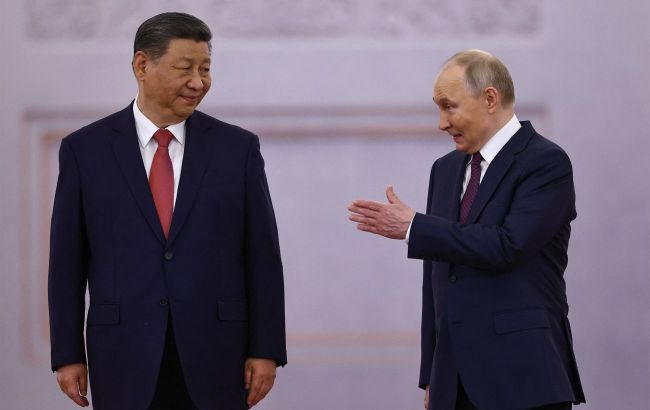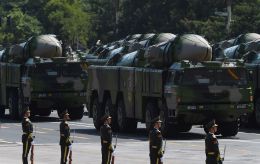China wants more Russian gas despite Power of Siberia 2 pipeline failure – Reuters
 Photo: Vladimir Putin and Xi Jinping (Getty Images)
Photo: Vladimir Putin and Xi Jinping (Getty Images)
China seeks to increase purchases of Russian gas through the existing Power of Siberia 1 pipeline. Negotiations on the construction of a second pipeline, Power of Siberia 2, have not progressed, hindering Moscow's plans to expand exports, Reuters reports.
Energy will be a key topic at the meeting between Vladimir Putin and Xi Jinping in China next week.
However, according to the agency's interlocutors, a breakthrough in the $13.6 billion project, which was supposed to supply 50 billion cubic meters of gas per year to northwestern China, is not expected.
Negotiations without results
Instead, Beijing is considering increasing gas imports via Power of Siberia 1. Currently, the volume of supplies is 38 billion cubic meters.
Russia is increasing its energy exports to Asia after losing the European market due to sanctions imposed in response to its invasion of Ukraine. For more than 50 years, Moscow supplied Europe with gas from Western Siberia, delivering up to 180 billion cubic meters annually and earning up to $90 billion.
Power of Siberia 2 project stalled
Deliveries to China via Power of Siberia 1 began in 2019. Currently, Western and Eastern Siberia are not connected by a single network, and Moscow plans to build Power of Siberia 2 to redirect gas from Western Siberian fields.
The project was originally conceived as a tool for competition between the EU and China for Russian gas. After 2022, when Europe almost completely stopped imports, the gas pipeline became even more important for Moscow. But Moscow and Beijing have been unable to agree on price and financing, despite more than a decade of negotiations.
Prospects for additional supplies
China is increasing its own gas production and developing renewable energy, which reduces its need for imports. However, geopolitical risks make Russian supplies more attractive, according to Tatiana Mitrova, an expert at Columbia University's Center on Global Energy Policy.
According to sources, Gazprom and CNPC are discussing increasing supplies via Power of Siberia 1 by 6 billion cubic meters per year from 2031. These volumes could bring Gazprom about $1.5 billion per year at a price of $250 per thousand cubic meters.
Preparation of Chinese infrastructure
The Chinese state-owned company PipeChina has begun research into expanding its gas transportation system to receive more fuel from Russia. Construction of new facilities may begin in the second half of 2026.
Sergey Sanakoev, head of the Asia-Pacific Research Center in Moscow, said that Russia and China are discussing the possibility of increasing supplies via Power of Siberia 1 to 45 billion cubic meters.
Russia has seen a decline in trade with China: according to Chinese customs data, trade between the two countries fell by 8.1% between January and July 2025.
China is the largest sponsor of Russia's war against Ukraine. Its purchases of raw materials in Russia help Putin maintain his military machine.

